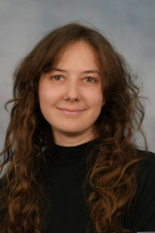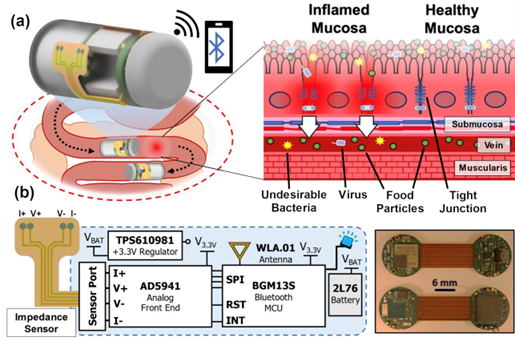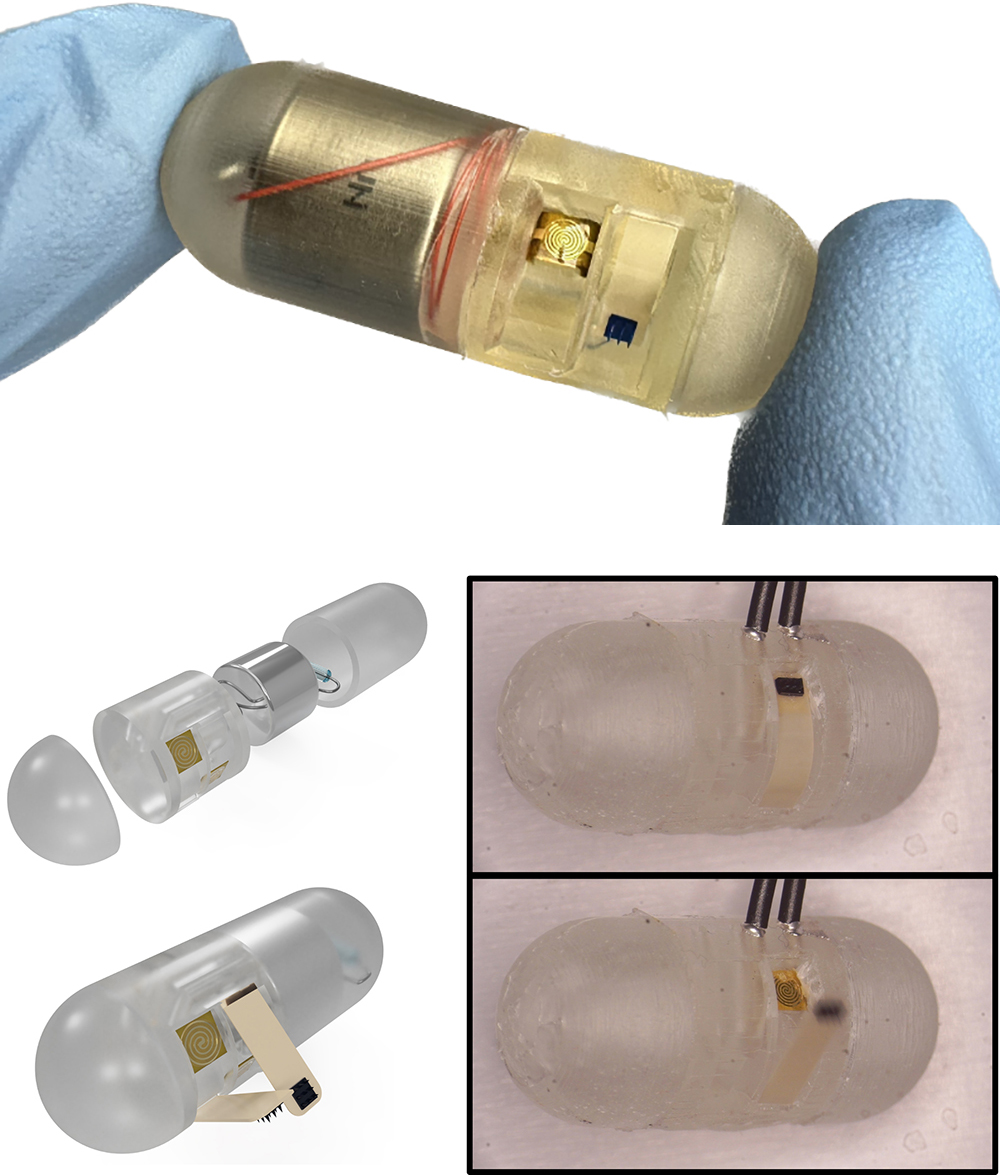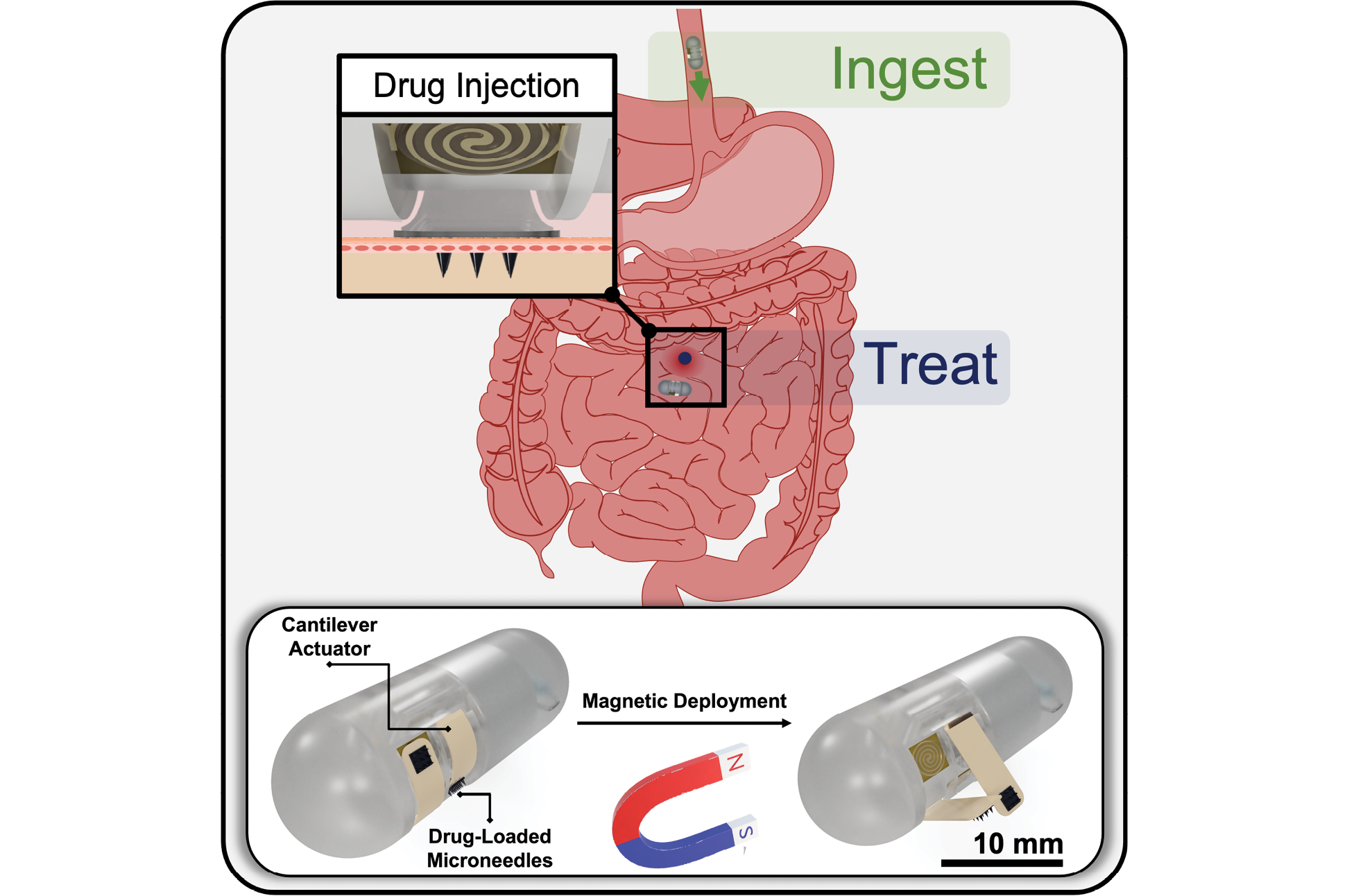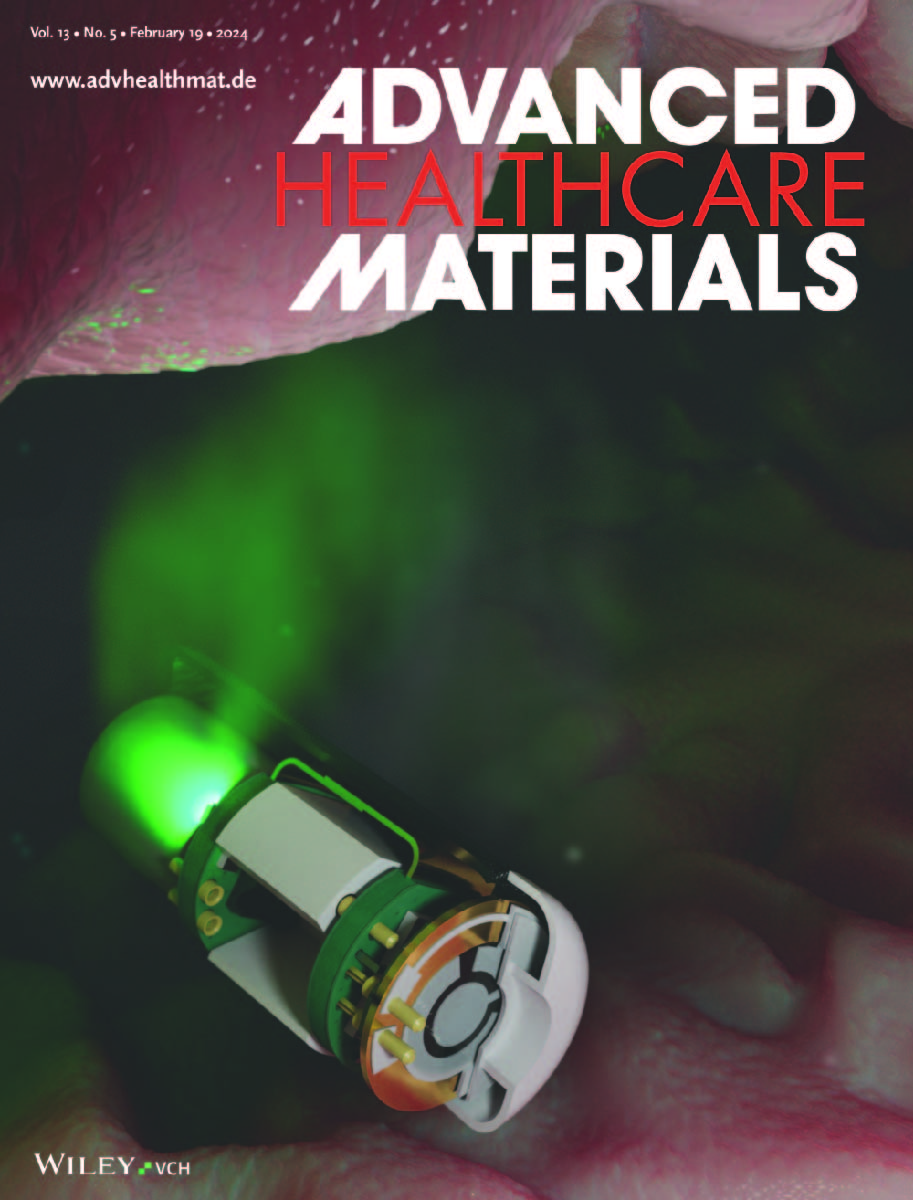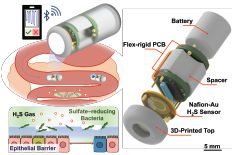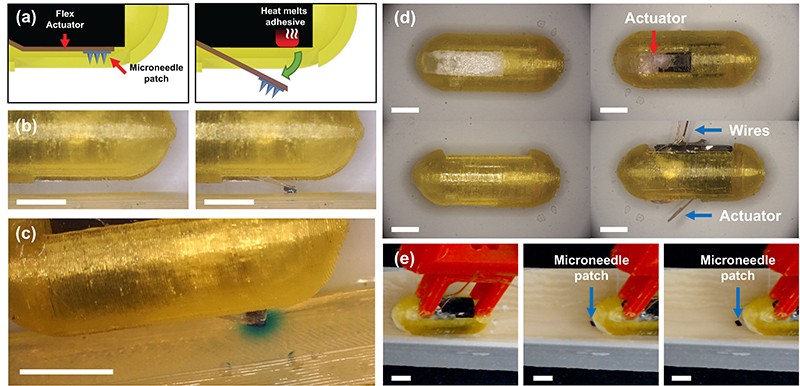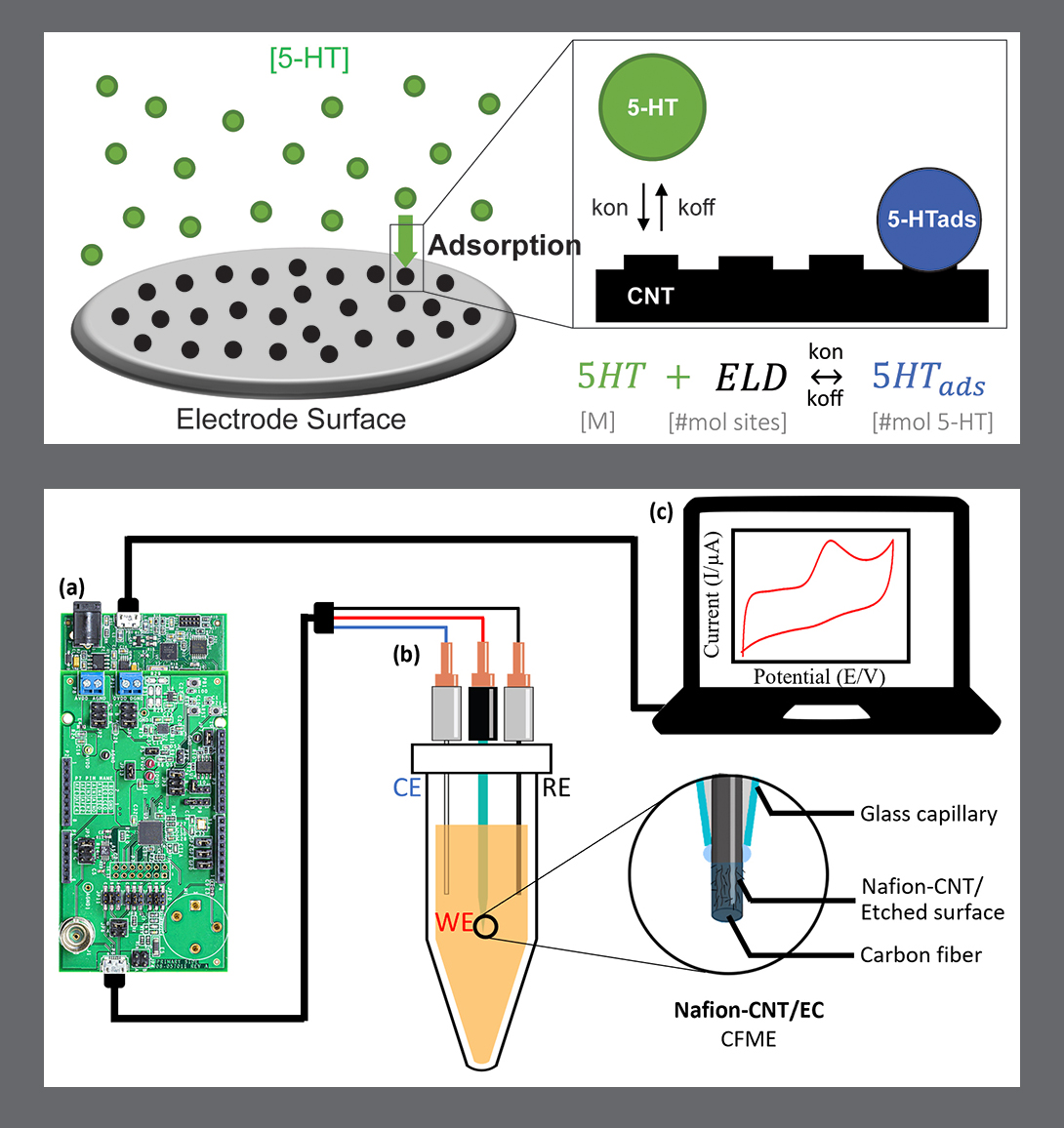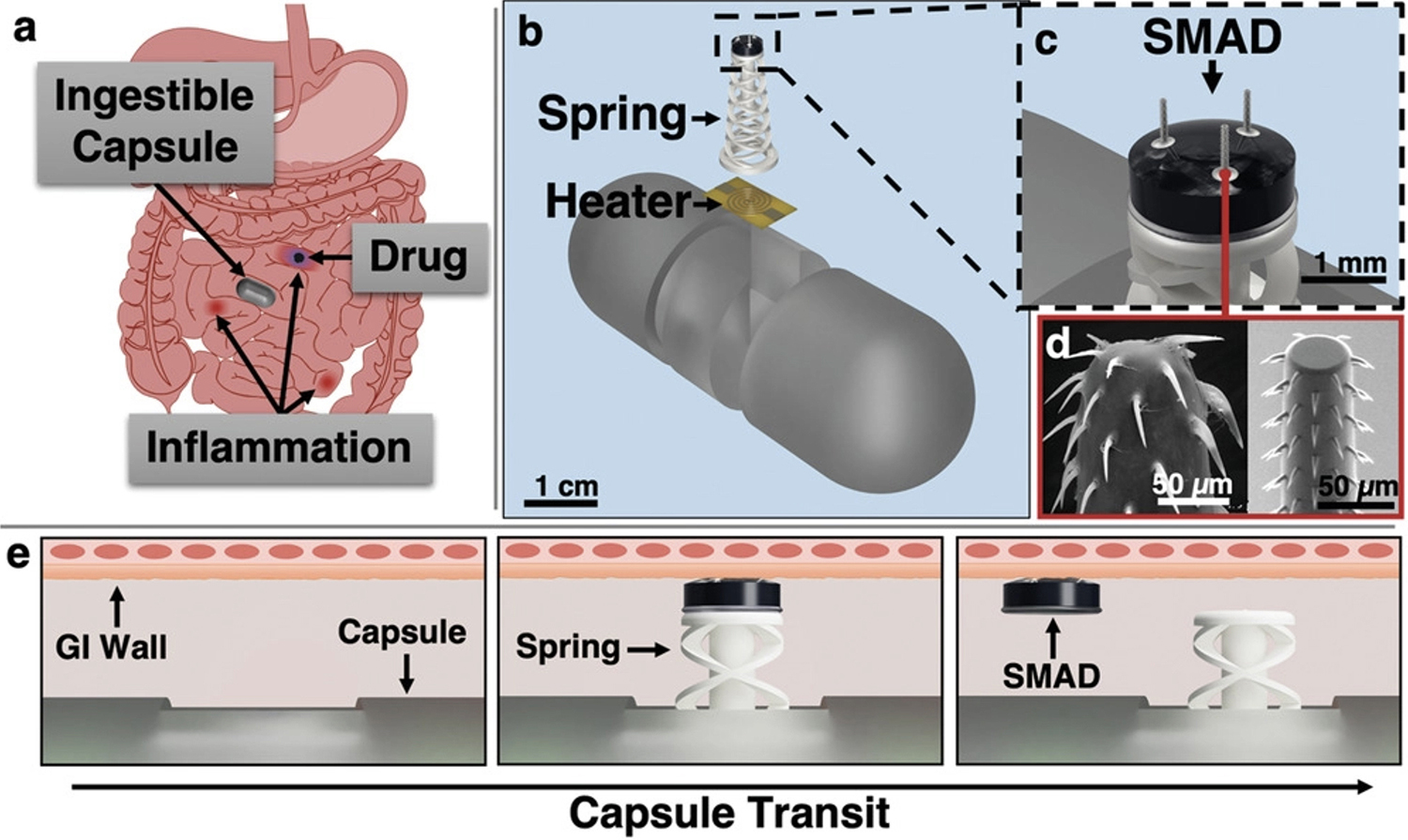News Story
Two Former MSAL Doctoral Students Awarded Tenure
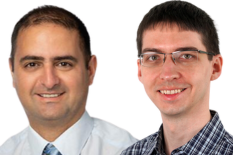
Two former students of Herbert Rabin Distinguished Chair in Engineering and Fischell Institute Fellow Reza Ghodssi’s MEMS Sensors and Actuators Laboratory (MSAL) have earned tenured positions at their respective universities. Nima Ghalichechian (ECE MS ’05, Ph.D. ’07) has been promoted to Associate Professor with tenure in the School of Electrical and Computer Engineering at the Georgia Institute of Technology (Georgia Tech), and Thomas Winkler (BIOE Ph.D. 2017) has been promoted to Associate Professor with tenure at the KTH Royal Institute of Technology in Stockholm, Sweden.
“The most rewarding aspect of our job as faculty in academia is seeing our former students and researchers advance in their respective professions and make a positive difference in people’s lives and communities,” Professor Ghodssi said.
Ghalichechian joined Georgia Tech as an Assistant Professor in August 2021. After receiving his Ph.D. from the University of Maryland (UMD) in 2007, he was a Senior Principal Engineer in the research department of Formfactor, Inc., Livermore, CA. In 2012, he joined the Ohio State University (OSU) Department of Electrical and Computer Engineering as a Research Scientist. From there, he rose from Research Assistant Professor to tenure-track Assistant Professor in 2017.
At Georgia Tech, he is the Associate Director of the Georgia Electronic Design Center (GEDC). He is also the Director of the MMWave Antennas and Arrays Laboratory, a research group that focuses on applied electromagnetics. His research interests include MMWave phased arrays, reconfigurable antennas, reflect-arrays, transmit-arrays, on-chip antennas, phase-change materials, non-reciprocal microwave devices, high-power arrays, and MMWave measurement techniques.
As a UMD student, Ghalichechian won the ISR Outstanding Systems Engineering Graduate Student Award in 2007 for his research on the development of next-generation Power MEMS devices on micro ball-bearing technology for miniature battery applications. This work resulted in the world’s first rotary micro-motor supported on micro ball bearings.
Highly recognized for his research, Ghalichechian has been the recipient of numerous awards, including the 2024 Roger Webb Outstanding Junior Faculty Award from Georgia Tech, the 2020 ECE Excellence in Teaching Award at OSU, and a 2019 US Air Force Faculty Summer Fellowship Award. He is an active member of the IEEE Antennas and Propagation Society (AP-S), where he is currently Associate Editor of the IEEE Transactions on Antennas & Propagation.
In 2019, he received a NSF CAREER Award for “Understanding and Exploiting Non-Linear Behavior of Phase-Change Materials for Millimeter-Wave Applications.” His research focuses on phase-change materials and their applications in the millimeter-wave domain, specifically in passive imaging sensors. The study will contribute to future radio-frequency reconfigurable communication systems.
Thomas Winkler also was advised at UMD by Professor Reza Ghodssi. His time in MSAL offered Winkler an opportunity to bridge his interests in microtechnology and mental health. This experience solidified his passion for researching how microsystems can help decode mental health disorders like schizophrenia, which he was able to pursue at KTH for his post-doctoral research.
“I am truly excited about the opportunity to join the Division of Micro and Nanosystems at KTH as an Associate Professor,” Winkler said. “It feels great to get that first permanent contract finally. I enjoyed my time as a postdoctoral researcher [at KTH] from 2017 to 2021, so it was a natural place to pursue a professorship.”
In 2023, Winkler was awarded a €1.5 million European Research Council (ERC) Starting Grant to further his research in the Winkler Lab on modular organ-on-chip technology to better understand neuropsychiatric disorders, specifically the role of cellular interactions between blood vessels and the nervous system in schizophrenia.
The prestigious Starting Grant supports top young researchers across Europe. The grants are part of the EU’s Horizon Europe program and are invested in scientific projects across all research disciplines. They are designed to help early-stage researchers start their own projects, build teams and pursue their best ideas.
“Even with an ERC Starting Grant, incoming researchers are often only offered Assistant Professor-level positions,” said Winkler. “Being offered a tenure-equivalent Associate Professor position, as well as a sizable start-up package, on top of the grant is a great personal and academic achievement.”
At KTH, Winkler intends to reintroduce a Ph.D.- and Master in Science-level course on organ-on-a-chip systems to educate the next generation of junior engineers on the potential of microsystems tools to solve life science challenges.
“I am honored to see Thomas and Nima promoted to associate professors with tenure at academic institutions recognized internationally for their outstanding research and educational contributions,” Ghodssi said. “I am very proud of them.”
Published September 13, 2024
